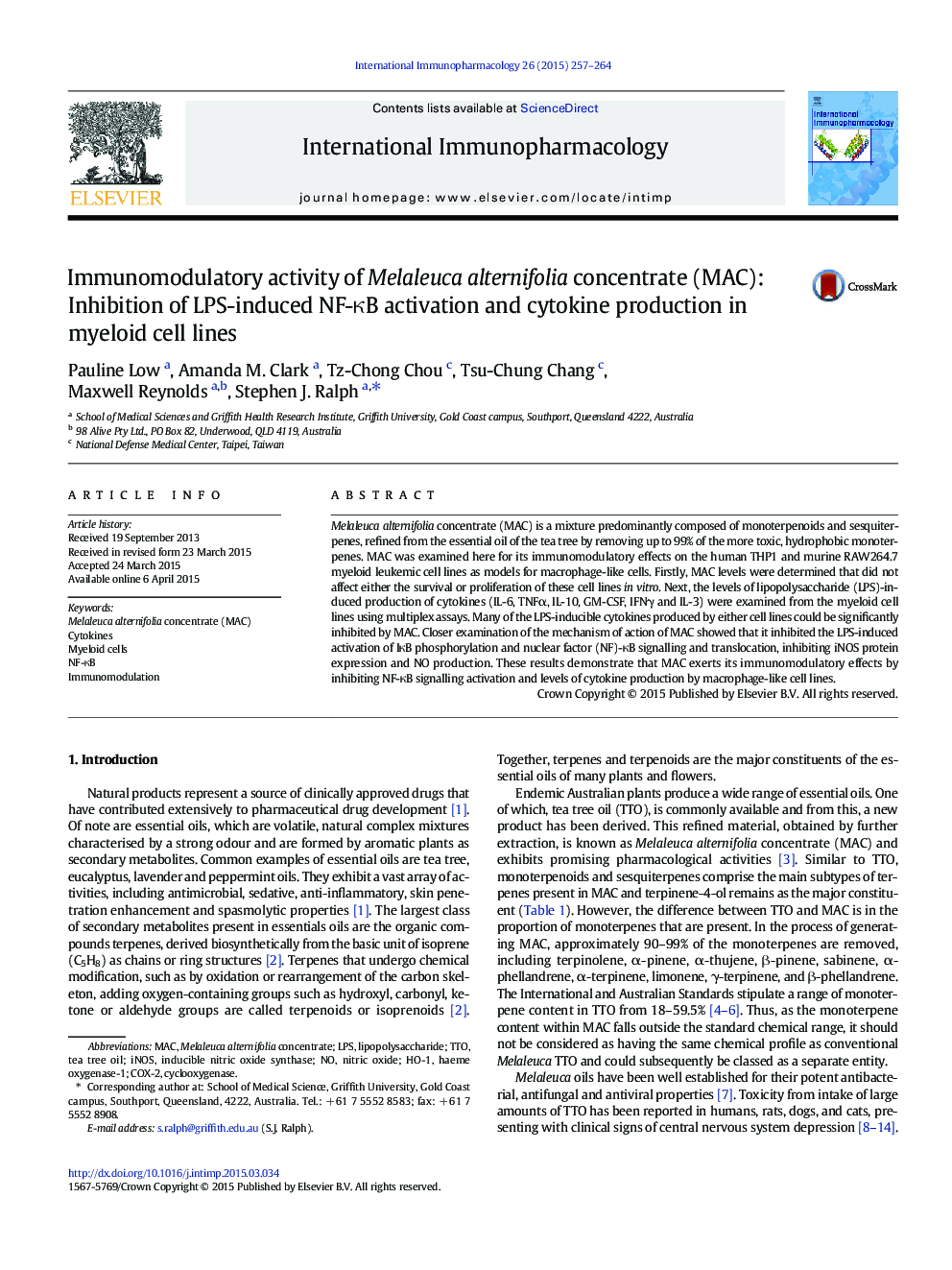| Article ID | Journal | Published Year | Pages | File Type |
|---|---|---|---|---|
| 2540765 | International Immunopharmacology | 2015 | 8 Pages |
•MAC, a product derived from Tea Tree Oil from the native plant Maleleuca Alternafolia, applied at low non-cytotoxic levels was shown to be an inhibitor of the LPS-induced cytokine production from macrophage-like myeloid cell lines.•The basis for the mechanism of MAC inhibiting the LPS-induced cytokine production was examined and MAC acts by blocking the activation of the IKK kinase phosphorylation in the treated macrophage-like cells.•The inhibition of IKK also prevented activated nuclear translocation of NF-κB and reduced expression of iNOS protein, inhibiting NO production by the myeloid cells.
Melaleuca alternifolia concentrate (MAC) is a mixture predominantly composed of monoterpenoids and sesquiterpenes, refined from the essential oil of the tea tree by removing up to 99% of the more toxic, hydrophobic monoterpenes. MAC was examined here for its immunomodulatory effects on the human THP1 and murine RAW264.7 myeloid leukemic cell lines as models for macrophage-like cells. Firstly, MAC levels were determined that did not affect either the survival or proliferation of these cell lines in vitro. Next, the levels of lipopolysaccharide (LPS)-induced production of cytokines (IL-6, TNFα, IL-10, GM-CSF, IFNγ and IL-3) were examined from the myeloid cell lines using multiplex assays. Many of the LPS-inducible cytokines produced by either cell lines could be significantly inhibited by MAC. Closer examination of the mechanism of action of MAC showed that it inhibited the LPS-induced activation of IκB phosphorylation and nuclear factor (NF)-κB signalling and translocation, inhibiting iNOS protein expression and NO production. These results demonstrate that MAC exerts its immunomodulatory effects by inhibiting NF-κB signalling activation and levels of cytokine production by macrophage-like cell lines.
